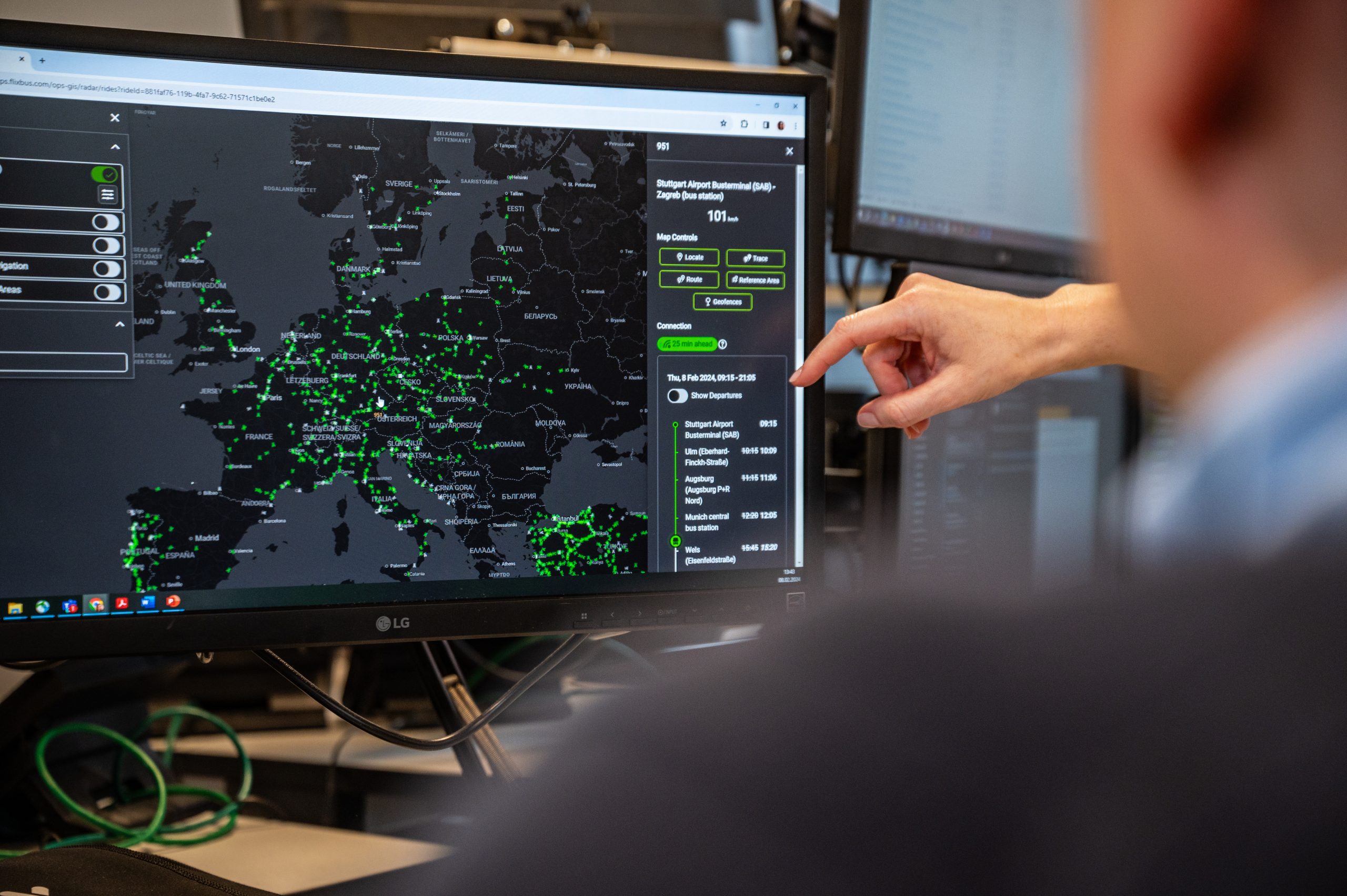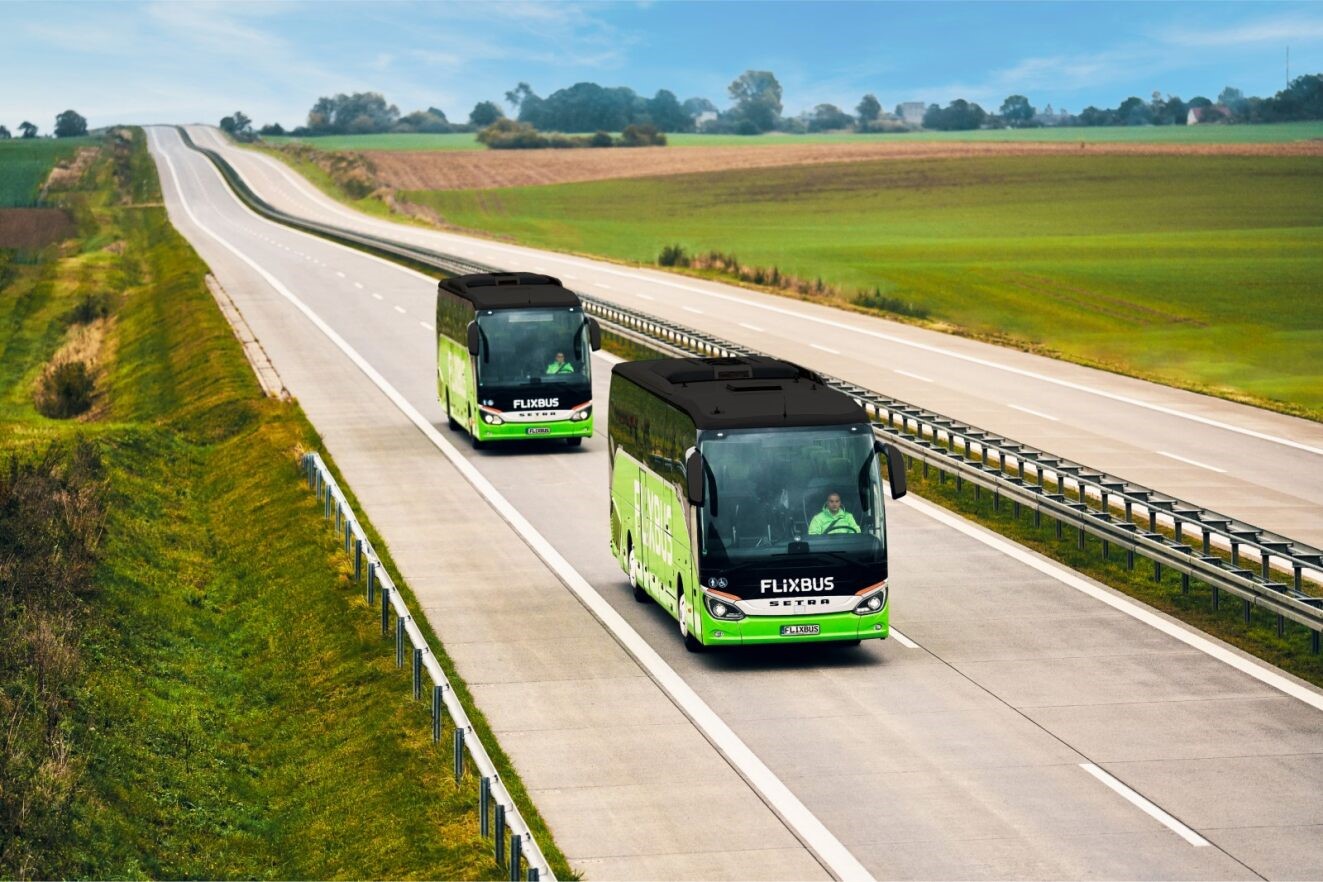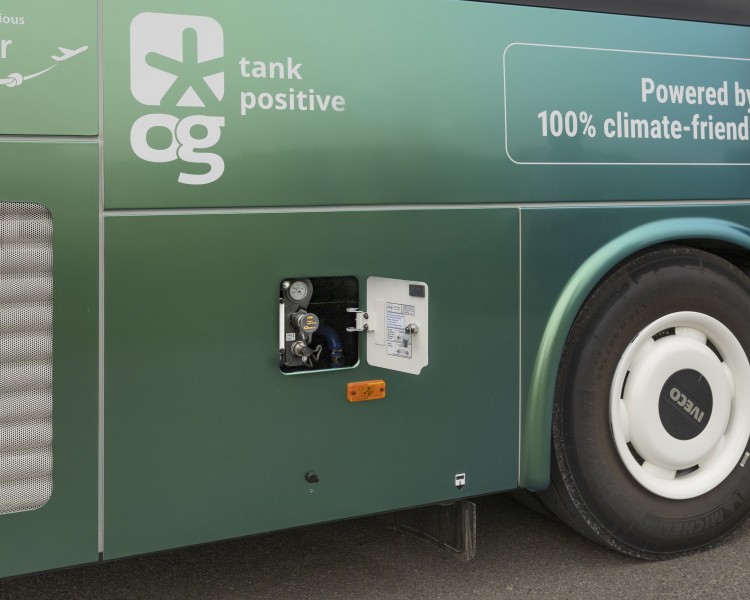
Heading towards decarbonization
Fleet transformation
In 2023, we committed to the Science Based Targets initiative to set near-term science-based emission reduction targets as the first crucial step towards full decarbonization.
The current targets, validated in April 2024, include a 54.6% absolute reduction in Scope 1 and 2, and a 40.9% reduction in Scope 3 emission intensity, both to be achieved by 2032 (with 2019 as a base year).
In this process, fleet transformation is going to play a key part.
Over the years, Flix has been engaging in a diverse range of pilots, to explore the potential of these solutions with a view to its long-term decarbonization goal.
Timeline
Our pilots: to 2024 and beyond
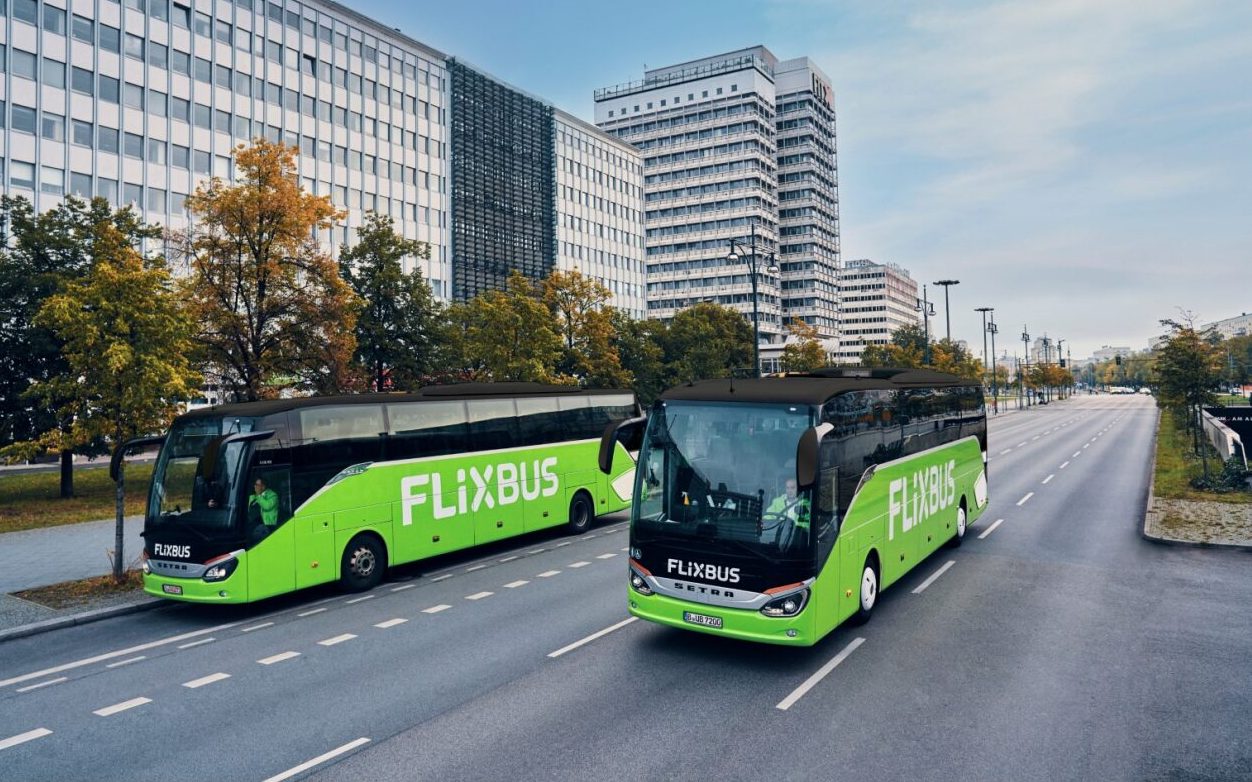
2013
Fuel-efficient diesel engine
First FlixBuses hitting the road in Germany, equipped with a fuel-efficient diesel engine.
A modern fleet of long-distance coaches, to provide passengers with a more sustainable alternative to individual mobility.
Our journey begins!
2013

Fuel-efficient diesel engine
First FlixBuses hitting the road in Germany, equipped with a fuel-efficient diesel engine.
A modern fleet of long-distance coaches, to provide passengers with a more sustainable alternative to individual mobility.
Our journey begins!
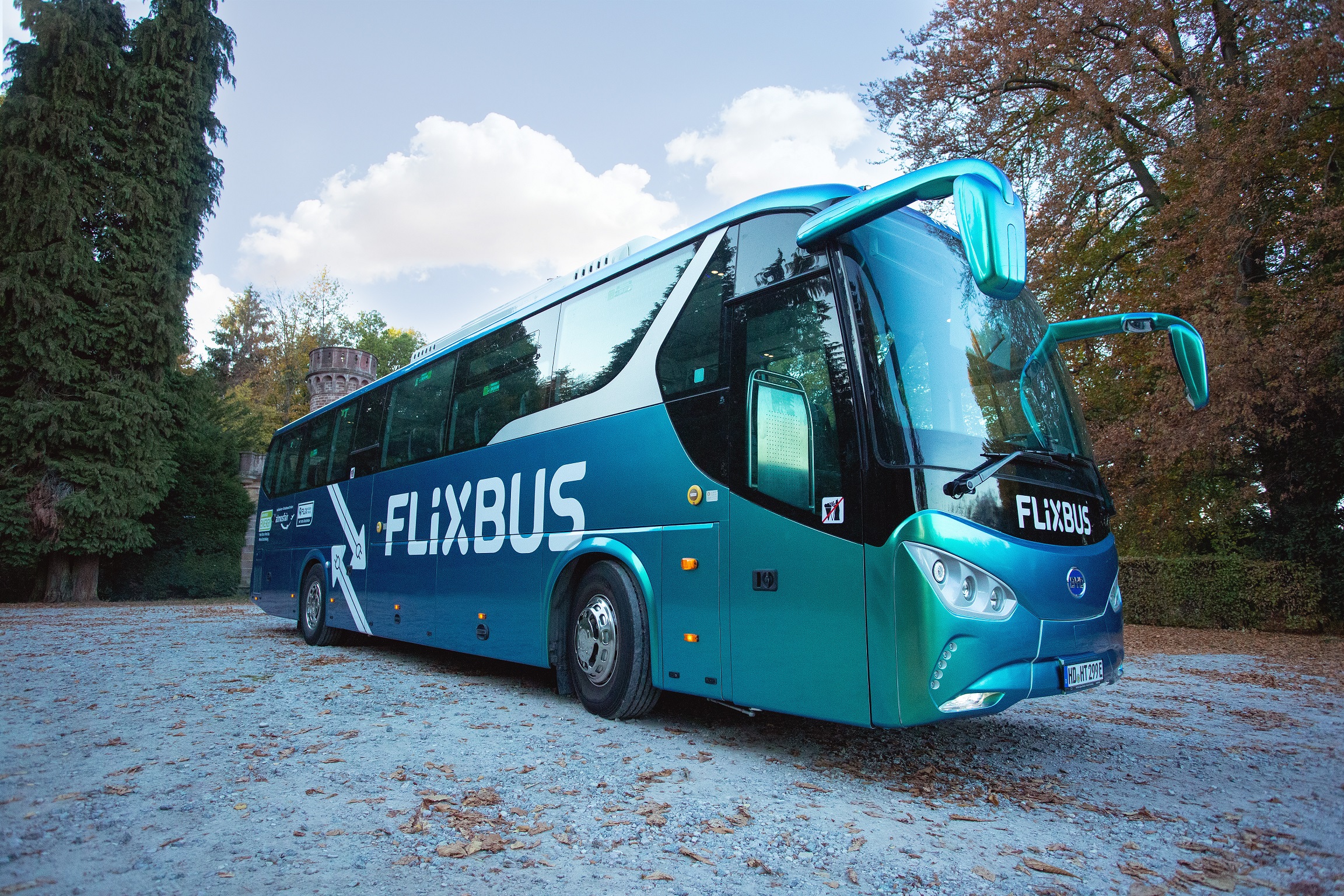
2018
Battery electric coaches
The world’s first battery electric long-distance coaches, launched in France and Germany. The French coach ran on the 130 km Paris-Amiens route. The German coach, powered with 100% clean energy supplied by Greenpeace Energy, ran between Frankfurt and Mannheim.
The first milestone along our path to fleet transformation
2018

Battery electric coaches
The world’s first battery electric long-distance coaches, launched in France and Germany. The French coach ran on the 130 km Paris-Amiens route. The German coach, powered with 100% clean energy supplied by Greenpeace Energy, ran between Frankfurt and Mannheim.
The first milestone along our path to fleet transformation
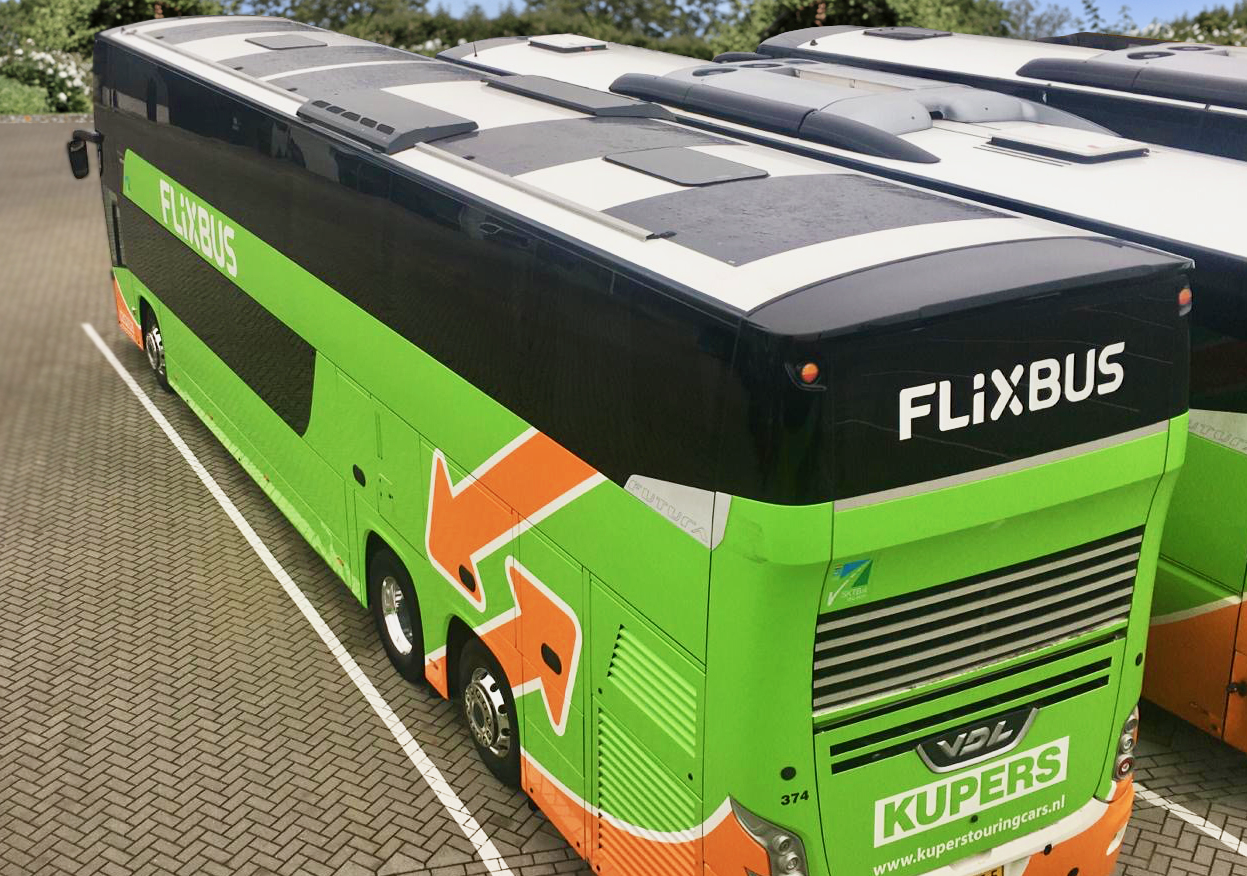
2020
Coach with solar panels
The world’s first long-distance coach with solar panels, operating on the Eindhoven-Paris route. Innovative technology from our partner Trailar supporting charging the onboard battery and reducing fuel consumption as a result.
First solar panel system added to the fleet
2020

Coach with solar panels
The world’s first long-distance coach with solar panels, operating on the Eindhoven-Paris route. Innovative technology from our partner Trailar supporting charging the onboard battery and reducing fuel consumption as a result.
First solar panel system added to the fleet
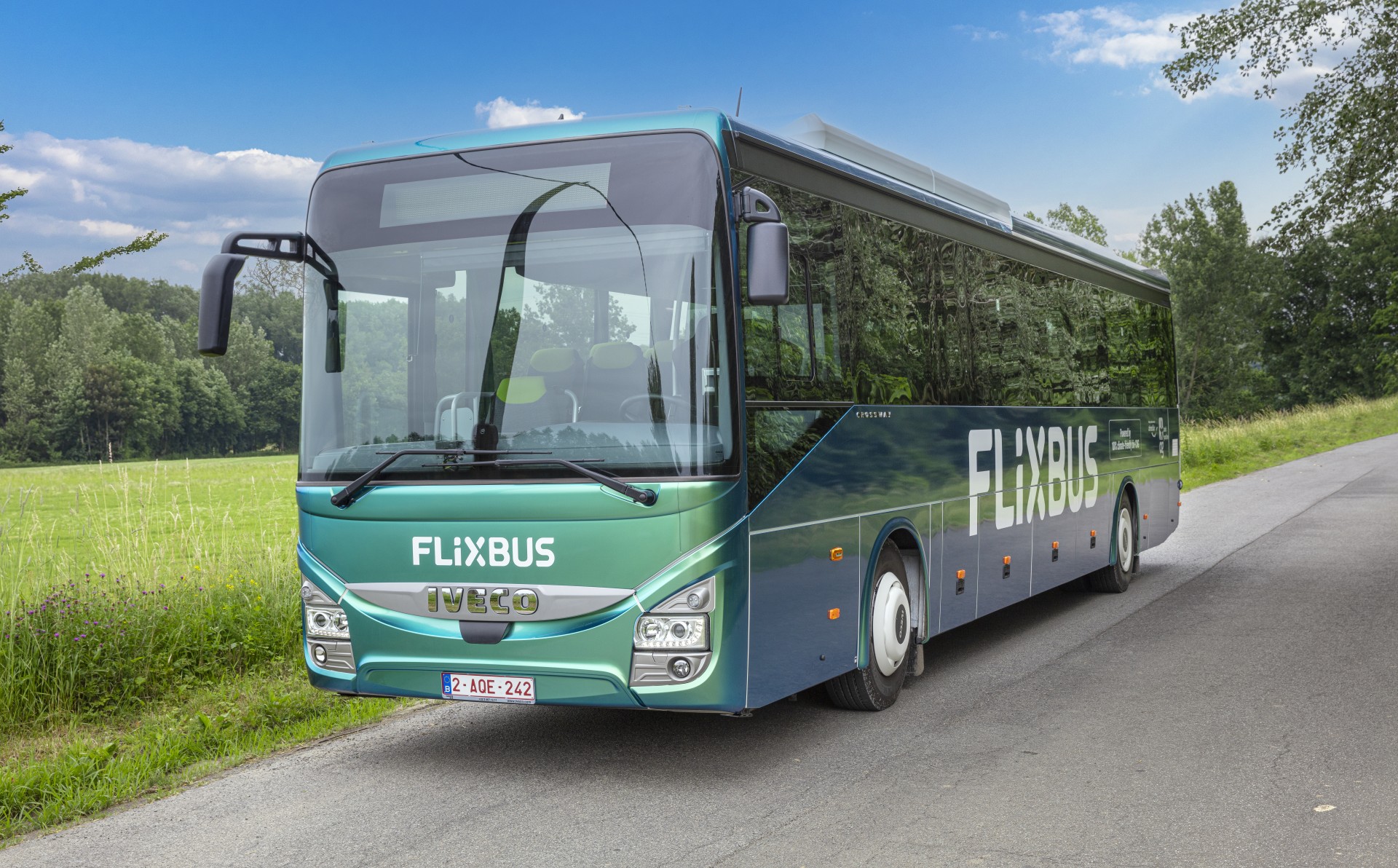
2021
Biogas-powered coaches
The EU’s first biogas-powered long-distance coaches, launched in the Benelux region, in cooperation with IVECO, running between Amsterdam and Brussels, and in Scandinavia, in cooperation with Scania, running between Oslo and Stockholm.
Reduction of 75% CO₂ on average compared to diesel operations on the same routes
2021

Biogas-powered coaches
The EU’s first biogas-powered long-distance coaches, launched in the Benelux region, in cooperation with IVECO, running between Amsterdam and Brussels, and in Scandinavia, in cooperation with Scania, running between Oslo and Stockholm.
Reduction of 75% CO₂ on average compared to diesel operations on the same routes
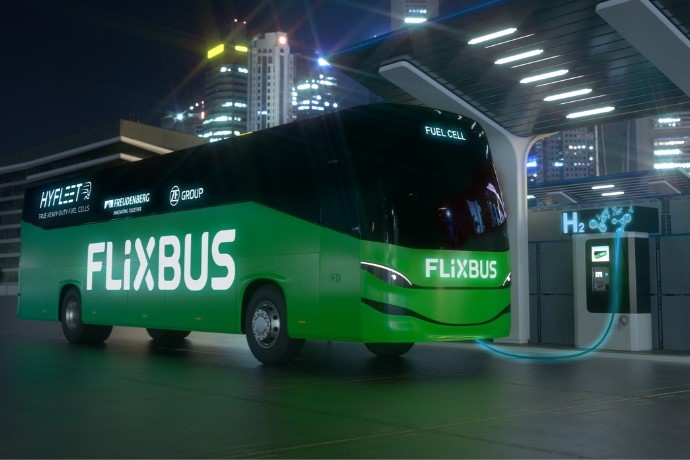
Launch of fuel cell project "Hyfleet"
Development of a fuel-cell technology perfectly tailored to long-distance coaches with better efficiency, in cooperation with Freudenberg Fuel Cell e-Power Systems and ZF Friedrichshafen AG.
Cooperation active until 2025

Launch of fuel cell project "Hyfleet"
Development of a fuel-cell technology perfectly tailored to long-distance coaches with better efficiency, in cooperation with Freudenberg Fuel Cell e-Power Systems and ZF Friedrichshafen AG.
Cooperation active until 2025
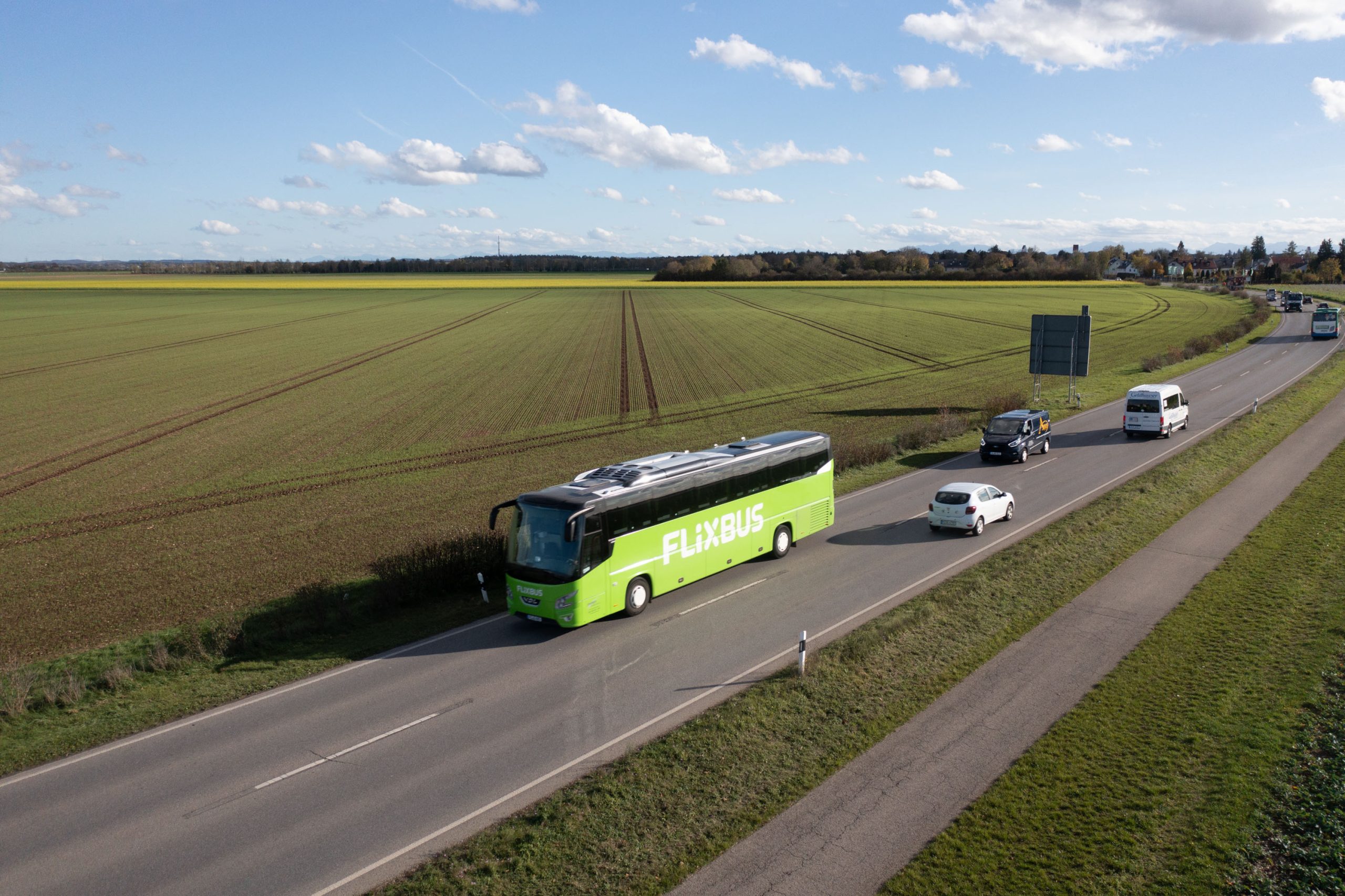
2022
New coaches with solar panels
More coaches equipped with solar panels running in Spain (3), in partnership with Trailar, and in the DACH region (2), Italy (2) and the US (2), in partnership with Green Energy.
Expanded pilot with 9 more solar panel system added to the fleet
2022

New coaches with solar panels
More coaches equipped with solar panels running in Spain (3), in partnership with Trailar, and in the DACH region (2), Italy (2) and the US (2), in partnership with Green Energy.
Expanded pilot with 9 more solar panel system added to the fleet
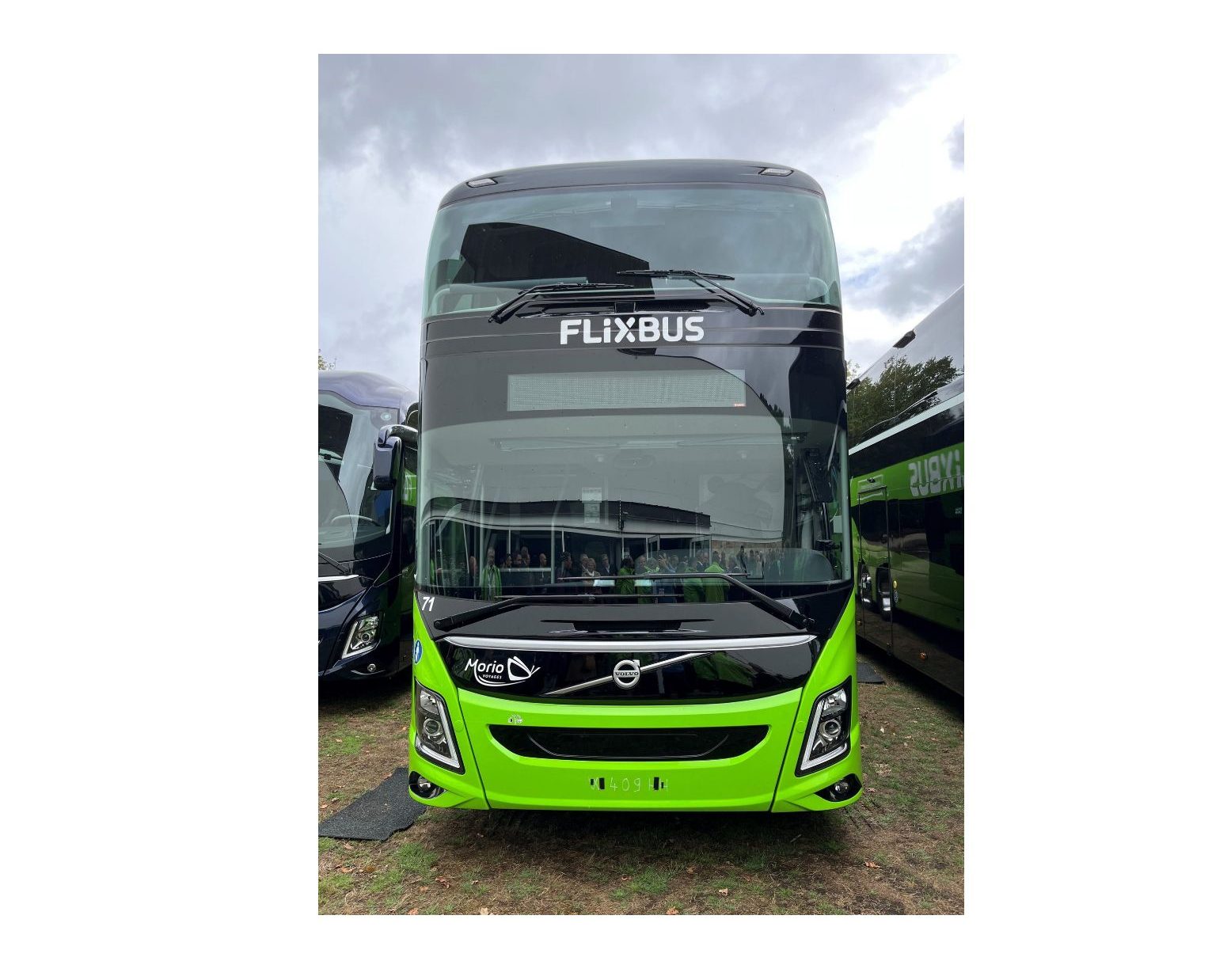
Biofuel coaches
Two biodiesel coaches in France running on the Brest-Grenoble line, using rapeseed biofuel Oleo100.
Reduction of up to 60% CO2 and up to 80% fine particle emissions on average compared to diesel operations on the same routes

Biofuel coaches
Two biodiesel coaches in France running on the Brest-Grenoble line, using rapeseed biofuel Oleo100.
Reduction of up to 60% CO2 and up to 80% fine particle emissions on average compared to diesel operations on the same routes
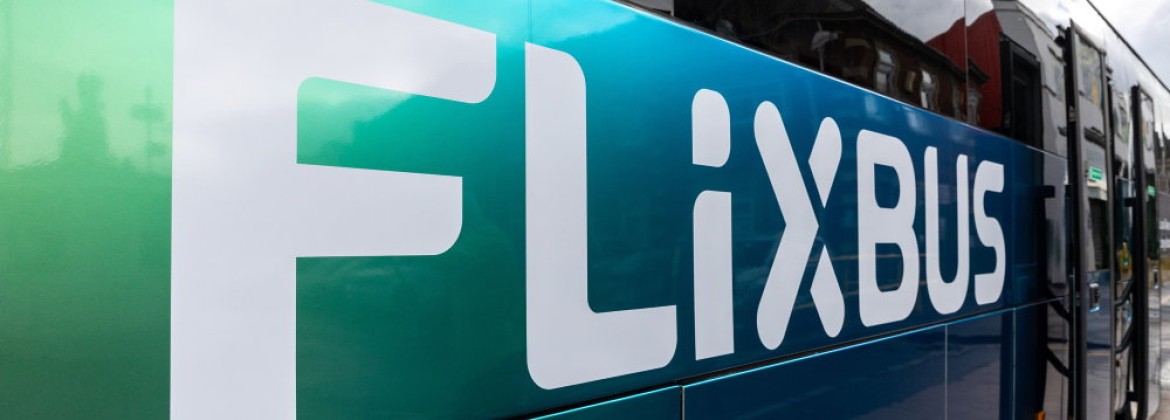
2024
New battery electric coaches
A pilot project for England’s first 100% electric long-distance coach service, running between London, Bristol, and Newport (South Wales), in cooperation with operator partner Newport Transport.
Reduction of 352 kg CO2 per day compared to diesel operations on the same routes
2024

New battery electric coaches
A pilot project for England’s first 100% electric long-distance coach service, running between London, Bristol, and Newport (South Wales), in cooperation with operator partner Newport Transport.
Reduction of 352 kg CO2 per day compared to diesel operations on the same routes
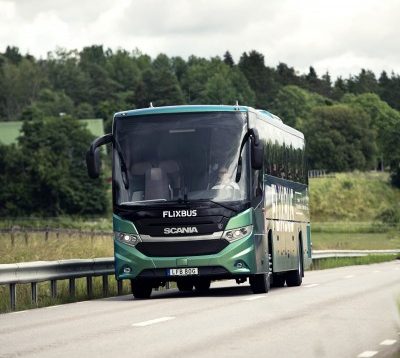
New biofuel coaches
A new fleet of 17 coaches running on HVO100 biofuel running on around 10 FlixBus routes in France.
Reduction of around 75% CO2 and up to 65% fine particle emissions compared to diesel operations on the same routes

New biofuel coaches
A new fleet of 17 coaches running on HVO100 biofuel running on around 10 FlixBus routes in France.
Reduction of around 75% CO2 and up to 65% fine particle emissions compared to diesel operations on the same routes
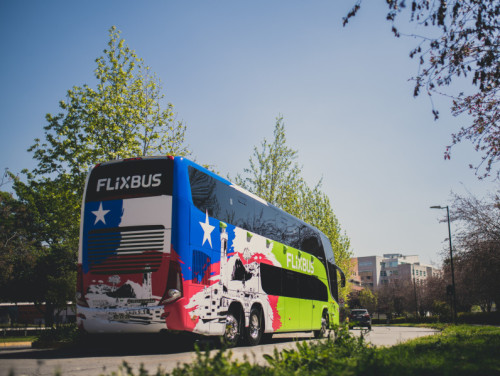
First battery electric coaches in Chile
Three 100% electric coaches running in collaboration with the Ministry of Transport and Telecommunications of Chile and the Santiago Metro, aimed at establishing a low-emissions electric travel corridor in the region.
Reduction of 100% CO2 at Tank-to-Wheel level

First battery electric coaches in Chile
Three 100% electric coaches running in collaboration with the Ministry of Transport and Telecommunications of Chile and the Santiago Metro, aimed at establishing a low-emissions electric travel corridor in the region.
Reduction of 100% CO2 at Tank-to-Wheel level
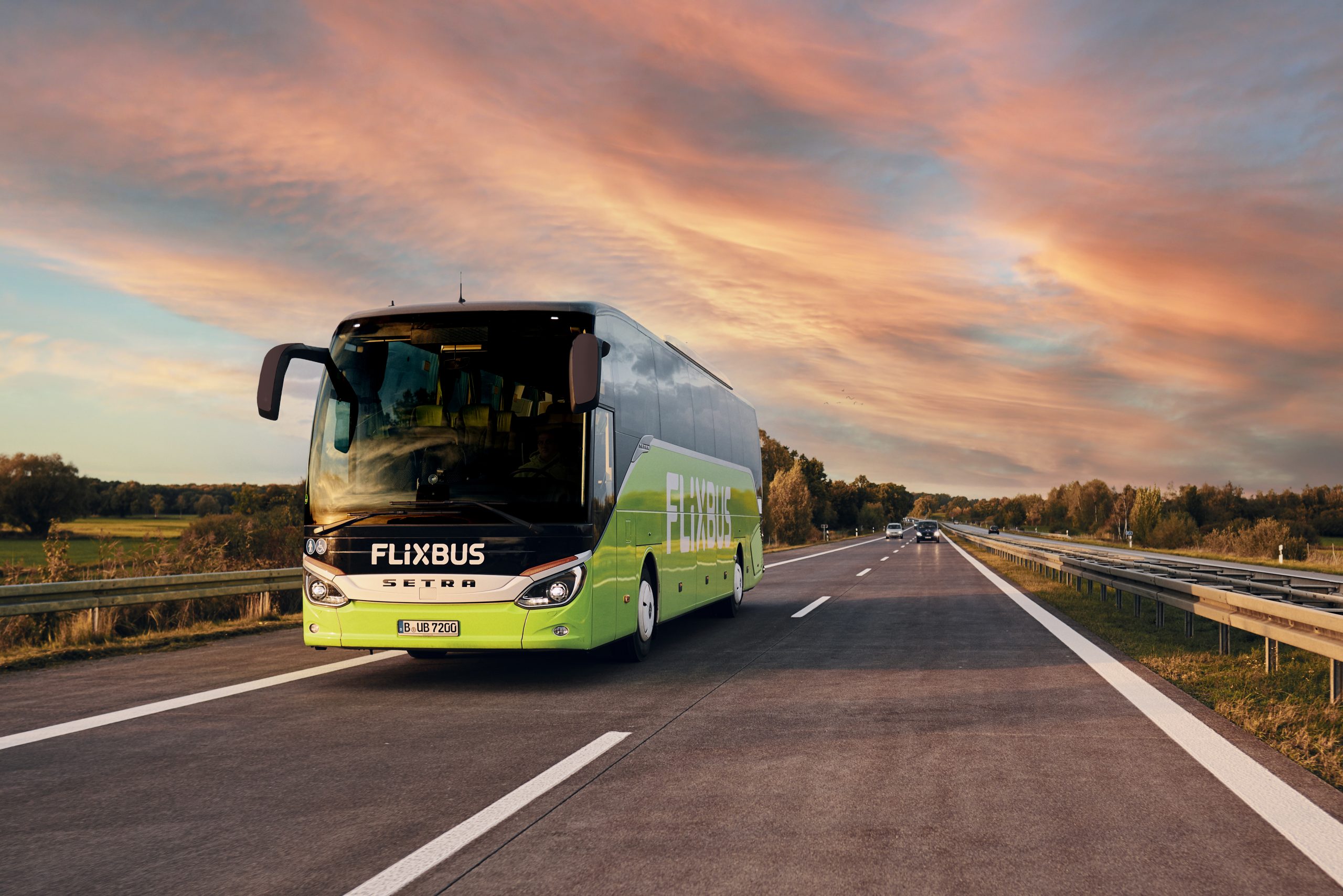
More coaches using HVO on the road
10 coaches fueled by HVO are launched in Italy as part of a pilot project involving five national lines across the country and using HVOlution provided by Enilive.
Reduction of up to -90% CO2 along the entire production cycle compared to reference fossil fuel

More coaches using HVO on the road
10 coaches fueled by HVO are launched in Italy as part of a pilot project involving five national lines across the country and using HVOlution provided by Enilive.
Reduction of up to -90% CO2 along the entire production cycle compared to reference fossil fuel
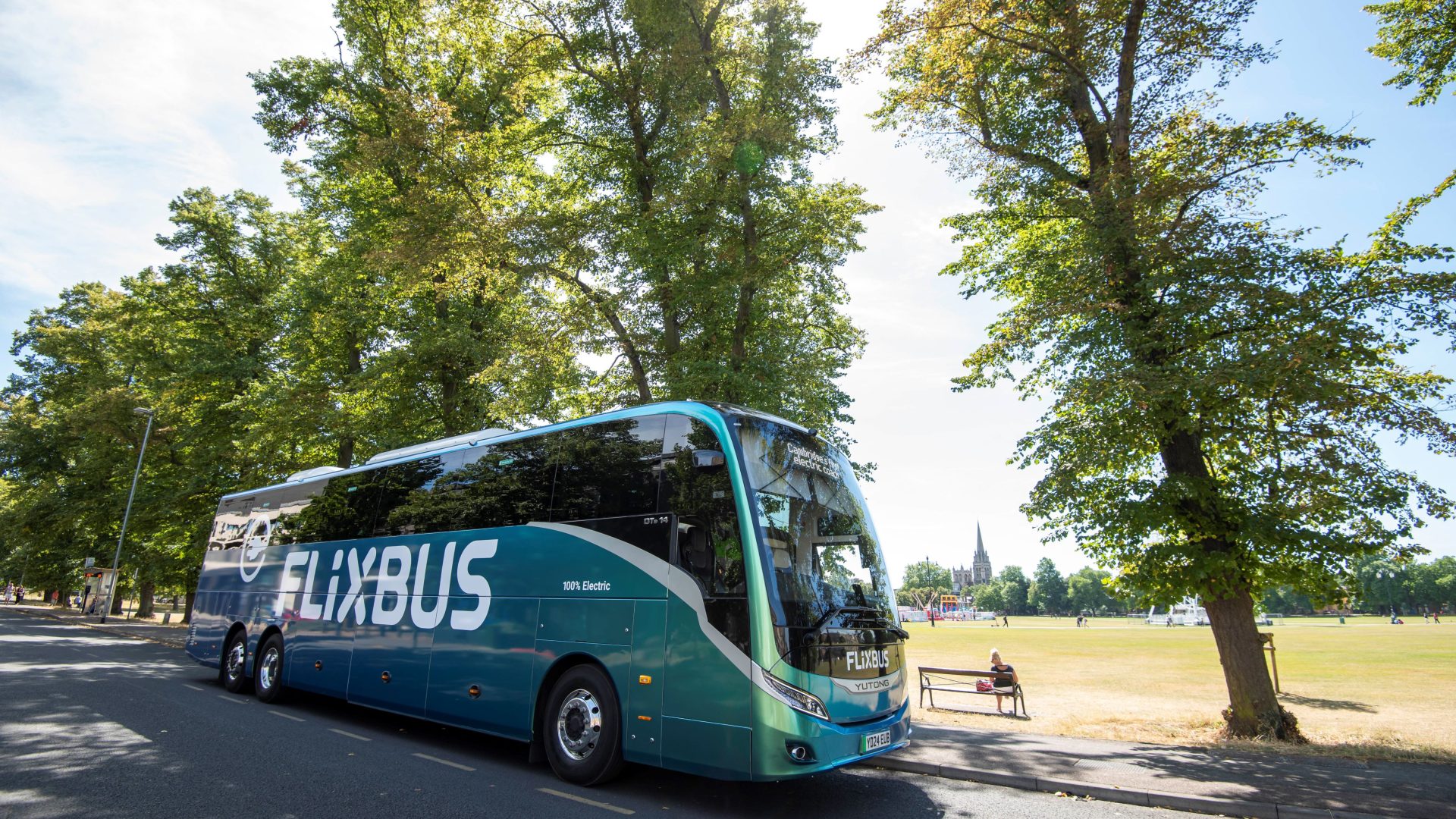
Second battery electric coach in the UK
A new battery electric coach pilot is launched on British roads between London and Cambridge, with energy supplied by Zenobē.
Reduction of 100% CO2 at Tank-to-Wheel level

Second battery electric coach in the UK
A new battery electric coach pilot is launched on British roads between London and Cambridge, with energy supplied by Zenobē.
Reduction of 100% CO2 at Tank-to-Wheel level
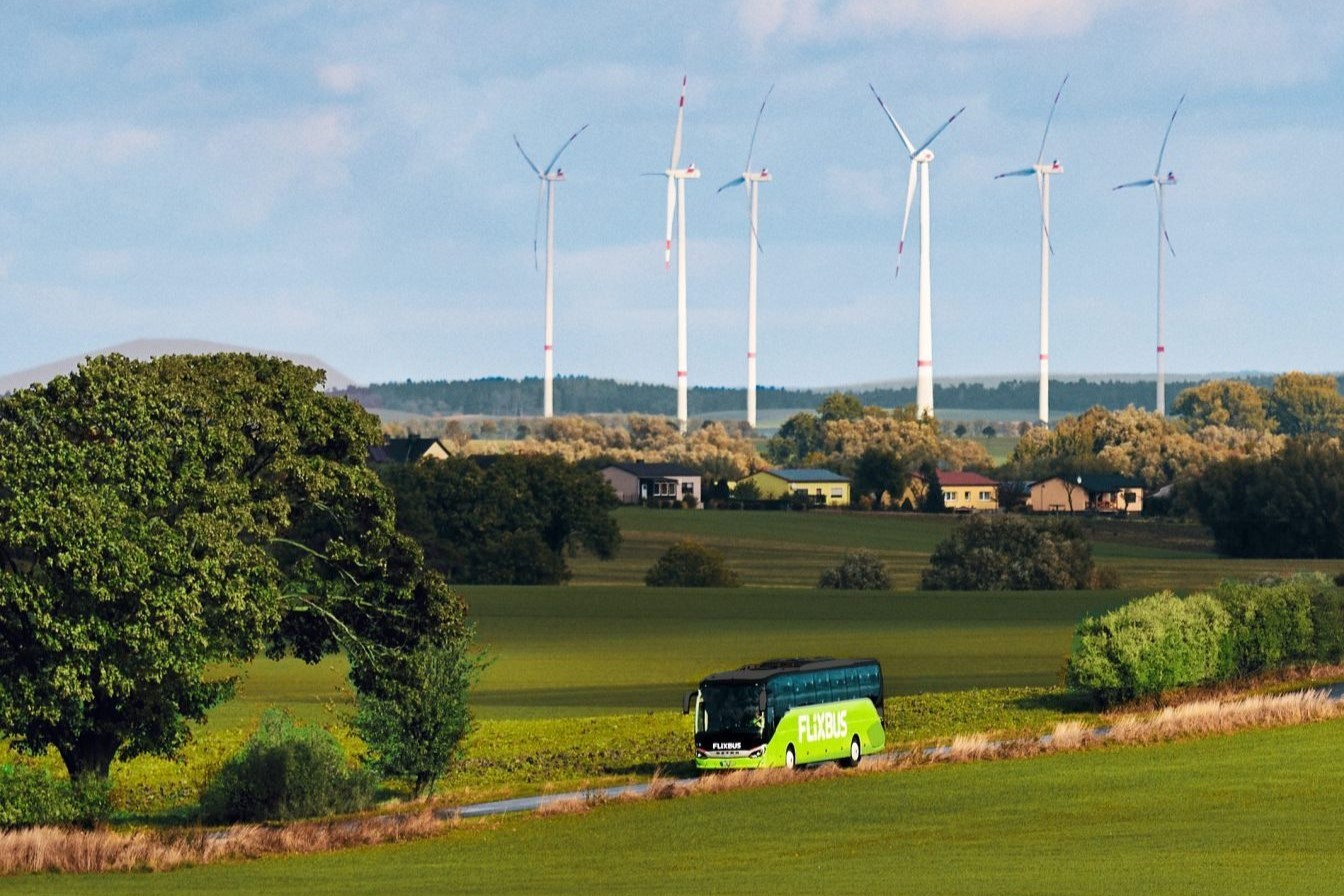
Battery electric coach in Portugal
A 100% battery electric coach is employed between Lisbon and Porto, scheduled to run twice a day for seven days a week, with energy supplied by EDP.
Reduction of 100% CO2 at Tank-to-Wheel level

Battery electric coach in Portugal
A 100% battery electric coach is employed between Lisbon and Porto, scheduled to run twice a day for seven days a week, with energy supplied by EDP.
Reduction of 100% CO2 at Tank-to-Wheel level
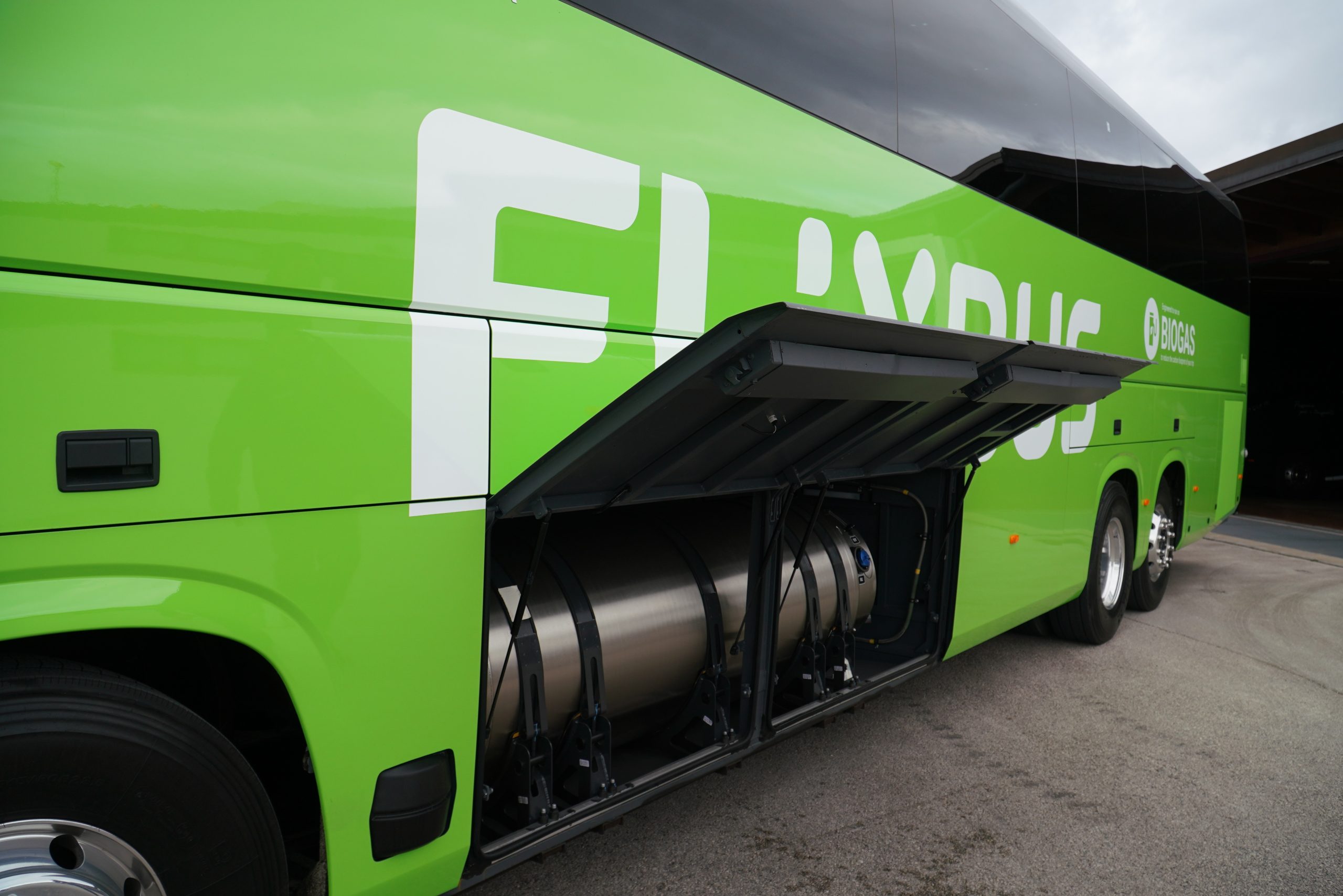
Reference fleet of LNG buses with biogas technologies across 5 European countries
A reference fleet of coaches equipped with Bio-LNG technologies in cooperation with Scania across 5 European countries (Germany, Belgium, The Netherlands, Italy, Czech Republic and Poland), with the aim of progressively enhancing use of biogas in long-distance coach transport.
Reduction of 100% CO2 at Well-to-Wheel level when fully running on biogas

Reference fleet of LNG buses with biogas technologies across 5 European countries
A reference fleet of coaches equipped with Bio-LNG technologies in cooperation with Scania across 5 European countries (Germany, Belgium, The Netherlands, Italy, Czech Republic and Poland), with the aim of progressively enhancing use of biogas in long-distance coach transport.
Reduction of 100% CO2 at Well-to-Wheel level when fully running on biogas
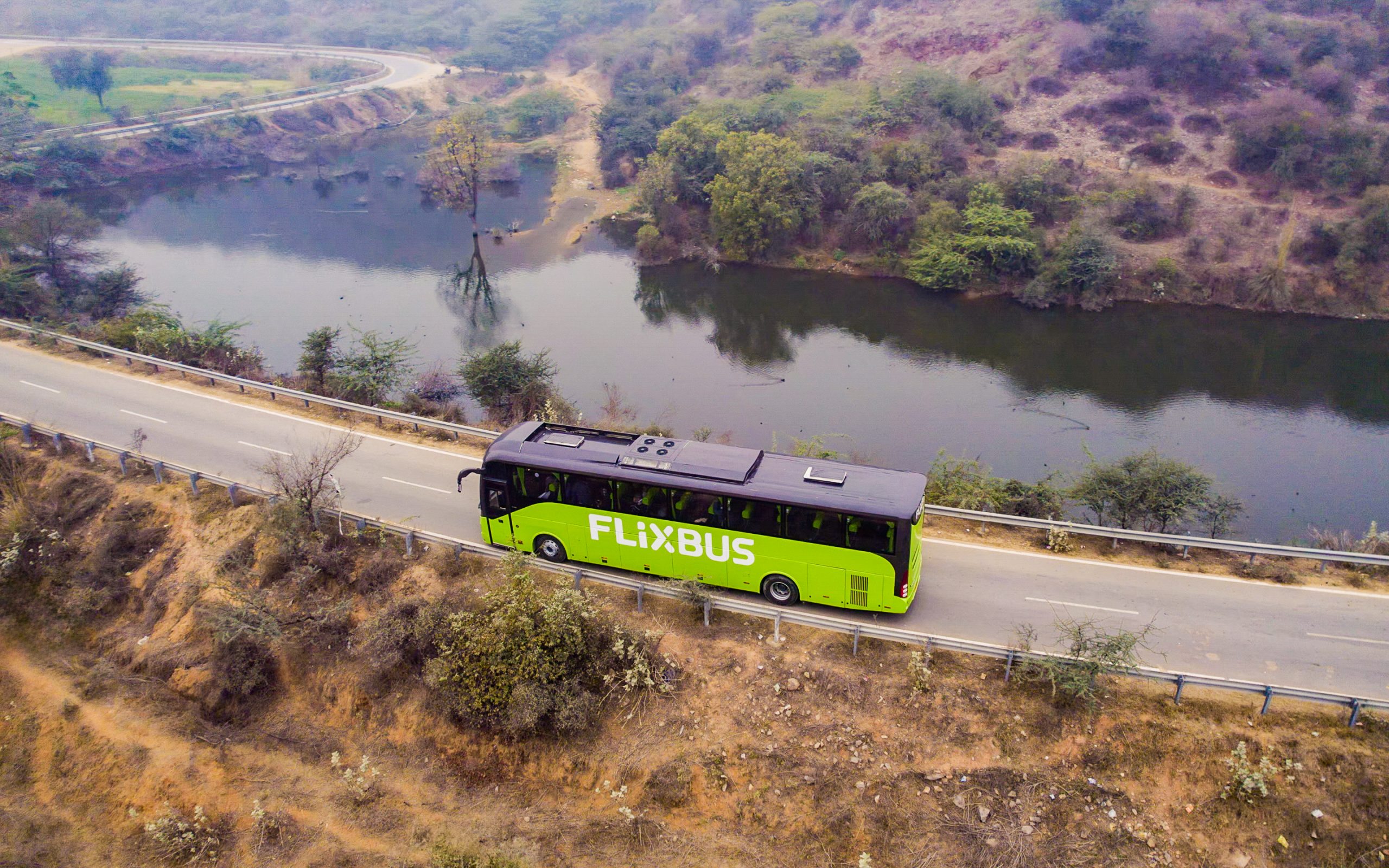
2025
Battery electric coaches in India
Four 100% battery electric coaches employed within the fleet of Flix’s Indian bus partners, marking our first steps in Asia within the framework of the fleet transformation project.
Reduction of 100% CO2 at Tank-to-Wheel level
2025

Battery electric coaches in India
Four 100% battery electric coaches employed within the fleet of Flix’s Indian bus partners, marking our first steps in Asia within the framework of the fleet transformation project.
Reduction of 100% CO2 at Tank-to-Wheel level

Battery electric project "ELCH“
Development of a technology suitable for long-range battery electric coaches, in cooperation with Daimler Buses.

Battery electric project "ELCH“
Development of a technology suitable for long-range battery electric coaches, in cooperation with Daimler Buses.
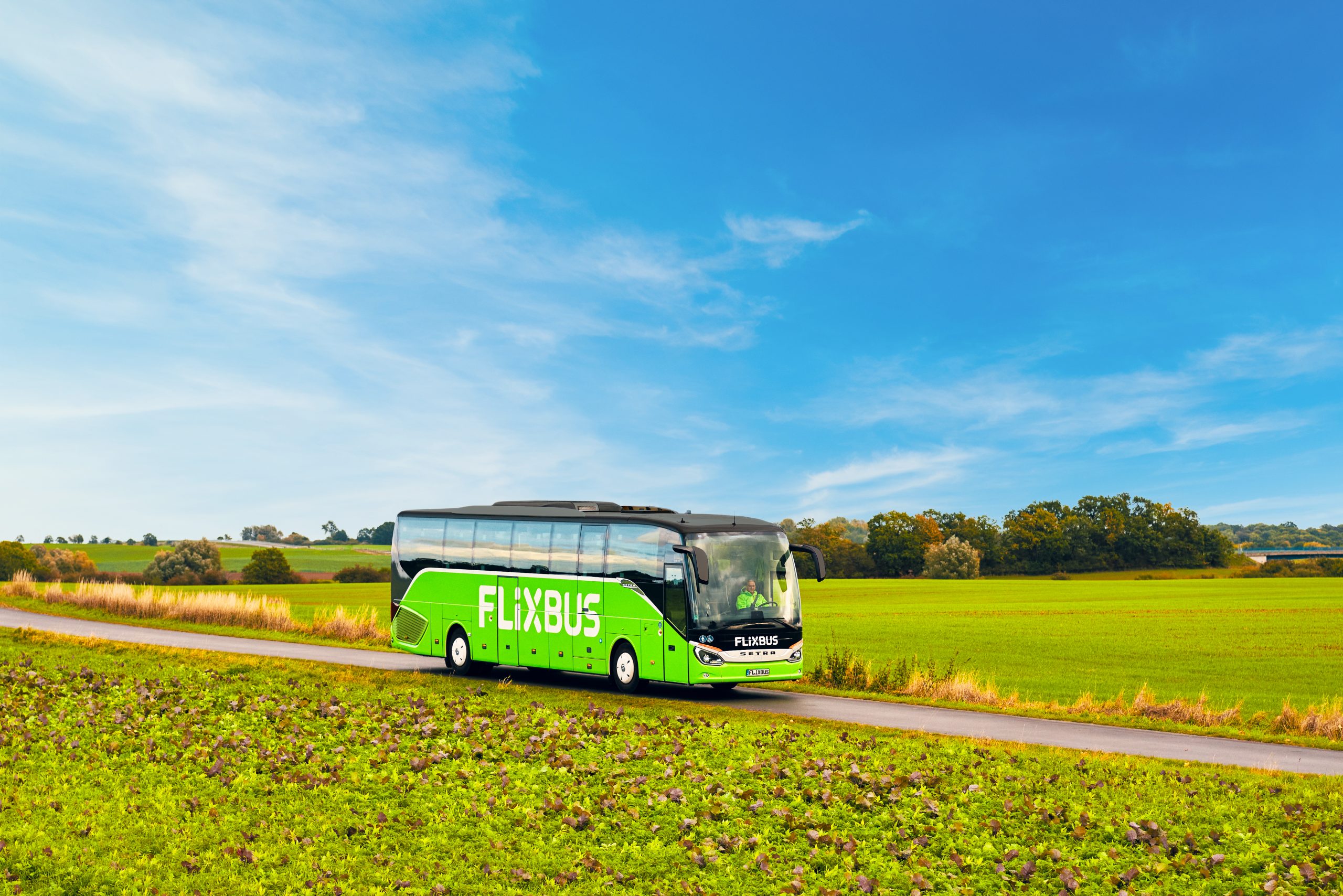
A more sustainable alternative to private cars and planes
Customers' Avoided Emissions
While we aim for net-zero emissions in the future, we can help people reduce their environmental footprint today.
For example, the emission factor for FlixBus in Europe is 27.8g CO2 per person/km, which is at least five times less than a private car and ten times less than a plane.
Taking into consideration all Flix services combined, our passengers are estimated to have avoided 1.5 million tonnes of CO2 emissions in 2024 alone, just by traveling by Flix coach or train instead of other modes of transport that emit more CO2 on a per person/km basis (based on the results of our Post Ride Survey).
To know more on the methodology used to quantify emissions benefit of collective travel, please refer to Flix’s 2024 Avoided Emissions reporting criteria, under Governance, Data and Policies.
